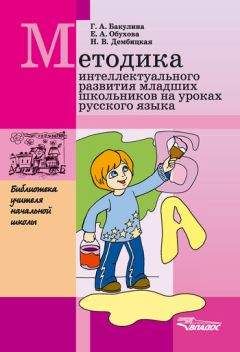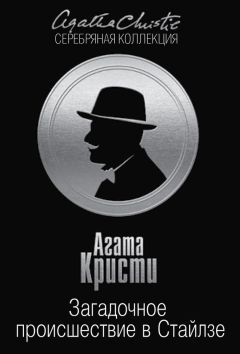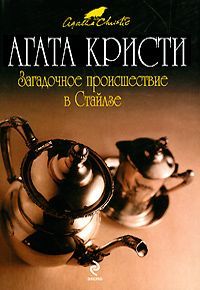Агата Кристи - Загадочное происшествие в Стайлзе [with w_cat]
[1955] On the afternoon of July 17th, continued Counsel, immediately after the quarrel with her son, Mrs. Inglethorp made a new will. This will was found destroyed in the grate of her bedroom the following morning, but evidence had come to light which showed that it had been drawn up in favour of her husband. Deceased had already made a will in his favour before her marriage, but-and Mr. Philips wagged an expressive forefinger-the prisoner was not aware of that. What had induced the deceased to make a fresh will, with the old one still extant, he could not say. She was an old lady, and might possibly have forgotten the former one; or-this seemed to him more likely-she may have had an idea that it was revoked by her marriage, as there had been some conversation on the subject. Ladies were not always very well versed in legal knowledge. She had, about a year before, executed a will in favour of the prisoner. He would call evidence to show that it was the prisoner who ultimately handed his stepmother her coffee on the fatal night. Later in the evening, he had sought admission to her room, on which occasion, no doubt, he found an opportunity of destroying the will which, as far as he knew, would render the one in his favour valid.
[1956] The prisoner had been arrested in consequence of the discovery, in his room, by Detective Inspector Japp-a most brilliant officer-of the identical phial of strychnine which had been sold at the village chemist's to the supposed Mr. Inglethorp on the day before the murder. It would be for the jury to decide whether or not these damning facts constituted an overwhelming proof of the prisoner's guilt.
[1957] And, subtly implying that a jury which did not so decide, was quite unthinkable, Mr. Philips sat down and wiped his forehead.
[1958] The first witnesses for the prosecution were mostly those who had been called at the inquest, the medical evidence being again taken first.
[1959] Sir Ernest Heavywether, who was famous all over England for the unscrupulous manner in which he bullied witnesses, only asked two questions.
[1960] "I take it, Dr. Bauerstein, that strychnine, as a drug, acts quickly?"
"Yes."
[1961] "And that you are unable to account for the delay in this case?"
"Yes."
"Thank you."
[1962] Mr. Mace identified the phial handed him by Counsel as that sold by him to "Mr. Inglethorp." Pressed, he admitted that he only knew Mr. Inglethorp by sight. He had never spoken to him. The witness was not cross-examined.
[1963] Alfred Inglethorp was called, and denied having purchased the poison. He also denied having quarrelled with his wife. Various witnesses testified to the accuracy of these statements.
[1964] The gardeners' evidence, as to the witnessing of the will was taken, and then Dorcas was called.
[1965] Dorcas, faithful to her "young gentlemen," denied strenuously that it could have been John's voice she heard, and resolutely declared, in the teeth of everything, that it was Mr. Inglethorp who had been in the boudoir with her mistress. A rather wistful smile passed across the face of the prisoner in the dock. He knew only too well how useless her gallant defiance was, since it was not the object of the defence to deny this point. Mrs. Cavendish, of course, could not be called upon to give evidence against her husband.
[1966] After various questions on other matters, Mr. Philips asked:
[1967] "In the month of June last, do you remember a parcel arriving for Mr. Lawrence Cavendish from Parkson's?"
Dorcas shook her head.
[1968] "I don't remember, sir. It may have done, but Mr. Lawrence was away from home part of June."
[1969] "In the event of a parcel arriving for him whilst he was away, what would be done with it?"
[1970] "It would either be put in his room or sent on after him."
[1971] "By you?"
[1972] "No, sir, I should leave it on the hall table. It would be Miss Howard who would attend to anything like that."
[1973] Evelyn Howard was called and, after being examined on other points, was questioned as to the parcel.
[1974] "Don't remember. Lots of parcels come. Can't remember one special one."
[1975] "You do not know if it was sent after Mr. Lawrence Cavendish to Wales, or whether it was put in his room?"
[1976] "Don't think it was sent after him. Should have remembered it if it was."
[1977] "Supposing a parcel arrived addressed to Mr. Lawrence Cavendish, and afterwards it disappeared, should you remark its absence?"
[1978] "No, don't think so. I should think some one had taken charge of it."
[1979] "I believe, Miss Howard, that it was you who found this sheet of brown paper?" He held up the same dusty piece which Poirot and I had examined in the morning-room at Styles.
"Yes, I did."
[1980] "How did you come to look for it?"
[1981] "The Belgian detective who was employed on the case asked me to search for it."
[1982] "Where did you eventually discover it?"
[1983] "On the top of-of-a wardrobe."
[1984] "On top of the prisoner's wardrobe?"
[1985] "I-I believe so."
[1986] "Did you not find it yourself?"
"Yes."
[1987] "Then you must know where you found it?"
[1988] "Yes, it was on the prisoner's wardrobe."
"That is better."
[1989] An assistant from Parkson's, Theatrical Costumiers, testified that on June 29th, they had supplied a black beard to Mr. L. Cavendish, as requested. It was ordered by letter, and a postal order was enclosed. No, they had not kept the letter. All transactions were entered in their books. They had sent the beard, as directed, to "L. Cavendish, Esq., Styles Court."
[1990] Sir Ernest Heavywether rose ponderously.
[1991] "Where was the letter written from?"
"From Styles Court."
[1992] "The same address to which you sent the parcel?"
"Yes."
[1993] "And the letter came from there?"
"Yes."
Like a beast of prey, Heavywether fell upon him:
[1994] "How do you know?"
"I-I don't understand."
[1995] "How do you know that letter came from Styles? Did you notice the postmark?"
"No-but-"
[1996] "Ah, you did *NOT notice the postmark! And yet you affirm so confidently that it came from Styles. It might, in fact, have been any postmark?"
"Y-es."
[1997] "In fact, the letter, though written on stamped notepaper, might have been posted from anywhere? From Wales, for instance?"
[1998] The witness admitted that such might be the case, and Sir Ernest signified that he was satisfied.
[1999] Elizabeth Wells, second housemaid at Styles, stated that after she had gone to bed she remembered that she had bolted the front door, instead of leaving it on the latch as Mr. Inglethorp had requested. She had accordingly gone downstairs again to rectify her error. Hearing a slight noise in the West wing, she had peeped along the passage, and had seen Mr. John Cavendish knocking at Mrs. Inglethorp's door.
[2000] Sir Ernest Heavywether made short work of her, and under his unmerciful bullying she contradicted herself hopelessly, and Sir Ernest sat down again with a satisfied smile on his face.
[2001] With the evidence of Annie, as to the candle grease on the floor, and as to seeing the prisoner take the coffee into the boudoir, the proceedings were adjourned until the following day.
[2002] As we went home, Mary Cavendish spoke bitterly against the prosecuting counsel.
[2003] "That hateful man! What a net he has drawn around my poor John! How he twisted every little fact until he made it seem what it wasn't!"
[2004] "Well," I said consolingly, "it will be the other way about to-morrow."
[2005] "Yes," she said meditatively; then suddenly dropped her voice. "Mr. Hastings, you do not think-surely it could not have been Lawrence-Oh, no, that could not be!"
[2006] But I myself was puzzled, and as soon as I was alone with Poirot I asked him what he thought Sir Ernest was driving at.
[2007] "Ah!" said Poirot appreciatively. "He is a clever man, that Sir Ernest."
[2008] "Do you think he believes Lawrence guilty?"
[2009] "I do not think he believes or cares anything! No, what he is trying for is to create such confusion in the minds of the jury that they are divided in their opinion as to which brother did it. He is endeavouring to make out that there is quite as much evidence against Lawrence as against John-and I am not at all sure that he will not succeed."
[2010] Detective-inspector Japp was the first witness called when the trial was reopened, and gave his evidence succinctly and briefly. After relating the earlier events, he proceeded:
[2011] "Acting on information received, Superintendent Summerhaye and myself searched the prisoner's room, during his temporary absence from the house. In his chest of drawers, hidden beneath some underclothing, we found: first, a pair of gold-rimmed pince-nez similar to those worn by Mr. Inglethorp" -these were exhibited-"secondly, this phial."
[2012] The phial was that already recognized by the chemist's assistant, a tiny bottle of blue glass, containing a few grains of a white crystalline powder, and labelled: "Strychnine Hydrochloride.POISON."
[2013] A fresh piece of evidence discovered by the detectives since the police court proceedings was a long, almost new piece of blotting-paper. It had been found in Mrs. Inglethorp's cheque book, and on being reversed at a mirror, showed clearly the words: "… erything of which I die possessed I leave to my beloved husband Alfred Ing…" This placed beyond question the fact that the destroyed will had been in favour of the deceased lady's husband. Japp then produced the charred fragment of paper recovered from the grate, and this, with the discovery of the beard in the attic, completed his evidence.
[2014] But Sir Ernest's cross-examination was yet to come.
[2015] "What day was it when you searched the prisoner's room?"
[2016] "Tuesday, the 24th of July."
[2017] "Exactly a week after the tragedy?"
"Yes."
[2018] "You found these two objects, you say, in the chest of drawers. Was the drawer unlocked?"
"Yes."
[2019] "Does it not strike you as unlikely that a man who had committed a crime should keep the evidence of it in an unlocked drawer for anyone to find?"
[2020] "He might have stowed them there in a hurry."
[2021] "But you have just said it was a whole week since the crime. He would have had ample time to remove them and destroy them."
"Perhaps."
[2022] "There is no perhaps about it. Would he, or would he not have had plenty of time to remove and destroy them?"
"Yes."
[2023] "Was the pile of underclothes under which the things were hidden heavy or light?"
"Heavyish."
[2024] "In other words, it was winter underclothing. Obviously, the prisoner would not be likely to go to that drawer?"
"Perhaps not."
[2025] "Kindly answer my question. Would the prisoner, in the hottest week of a hot summer, be likely to go to a drawer containing winter underclothing. Yes, or no?"
"No."
[2026] "In that case, is it not possible that the articles in question might have been put there by a third person, and that the prisoner was quite unaware of their presence?"
[2027] "I should not think it likely."
"But it is possible?"
"Yes."
"That is all."
[2028] More evidence followed. Evidence as to the financial difficulties in which the prisoner had found himself at the end of July. Evidence as to his intrigue with Mrs. Raikes-poor Mary, that must have been bitter hearing for a woman of her pride. Evelyn Howard had been right in her facts, though her animosity against Alfred Inglethorp had caused her to jump to the conclusion that he was the person concerned.
[2029] Lawrence Cavendish was then put into the box. In a low voice, in answer to Mr. Philips' questions, he denied having ordered anything from Parkson's in June. In fact, on June 29th, he had been staying away, in Wales.
[2030] Instantly, Sir Ernest's chin was shooting pugnaciously forward.
[2031] "You deny having ordered a black beard from Parkson's on June 29th?"
"I do."
[2032] "Ah! In the event of anything happening to your brother, who will inherit Styles Court?"
[2033] The brutality of the question called a flush to Lawrence's pale face. The judge gave vent to a faint murmur of disapprobation, and the prisoner in the dock leant forward angrily.
[2034] Heavywether cared nothing for his client's anger.
[2035] "Answer my question, if you please."
[2036] "I suppose," said Lawrence quietly, "that I should."
[2037] "What do you mean by you 'suppose'? Your brother has no children. You "WOULD inherit it, wouldn't you?"

![Агата Кристи - Загадочное происшествие в Стайлзе [with w_cat]](/uploads/posts/books/no-image.jpg)


